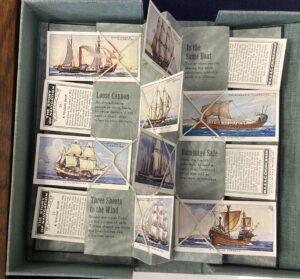
Here’s another word of great utility for our times. Our word describes a person who follows the teachings of Stoicism, well explained in this entry from The Stanford Encyclopedia of Philosophy. I encourage you to peruse this entry for a thorough examination of Stoicism’s origin, principles, and influences.
For our blog, however, let’s adapt the word to our times. “Stoic” has come to mean something different. Our subscription to The OED continues to remain dodgy, so I turned to a print source, The American Heritage Dictionary, unabridged and ponderous in my office.
I’m not satisfied by “One who is seemingly indifferent to or unaffected by joy, grief, pleasure, or pain” (you will also find that in their online entry). Why? This is but one meaning of the word, perhaps a casual one, and it does no justice to rich tradition of enduring hardships.
The dictionary definition misses the wisdom of thinkers such as Marcus Aurelius or Epictetus, reducing a useful idea to a form of numbness. A Stoic temperament means something far deeper.
Let’s look at a quotation or two from each philosopher that illustrate the depth of the word.
From Aurelius, “If it is not right, do not do it, if it is not true, do not say it” and “Accept the things to which fate binds you and love the people with whom fate brings you together but do so with all your heart.”
I took these from a list at The Daily Stoic, but in my reading of the Emperor’s Meditations, one quotation struck me forcefully, and it was said by him in many different ways. Here’s one instance: “You have power over your mind – not outside events. Realize this, and you will find strength.”
We can, in short, only control ourselves and a few things that relate to us.
For Epictetus, whose philosophy I chanced upon in Monticello’s gift shop (Jefferson was an avid reader of his and a Stoic), “There is only one way to happiness and that is to cease worrying about things which are beyond the power or our will” and “Any person capable of angering you becomes your master; he can anger you only when you permit yourself to be disturbed by him.”
I have covered the term equanimity here before; a Stoic temperament embodies that virtue.
If a Roman Emperor realized this, with legions at his command, can we? With so much anxiety among friends, students, and colleagues, we might look back to Stoicism for a way to endure inevitable difficulties ahead.
Please send useful words and metaphors to me at jessid -at- richmond -dot- edu or by leaving a comment below. See all of our Metaphors of the Month here and Words of the Week here.
Image Source: Wikipedia.








